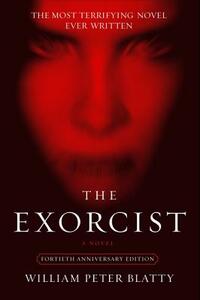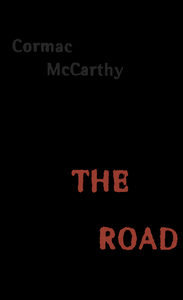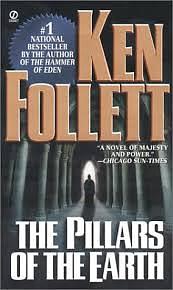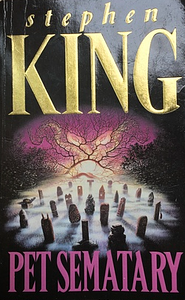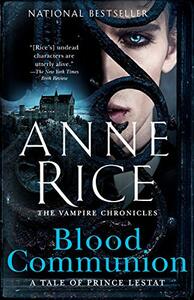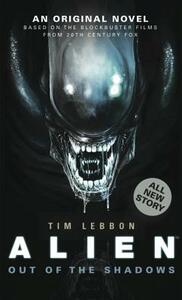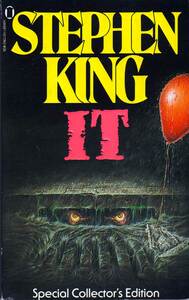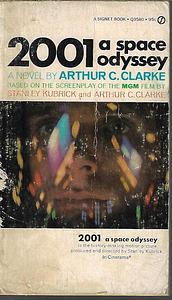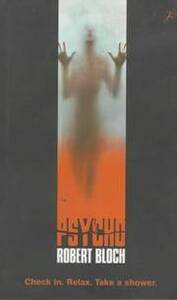You need to sign in or sign up before continuing.
Take a photo of a barcode or cover
josephstoneauthor's Reviews (27)
Even if you separated the subject matter out of this work, it is probably one of the best-written novels I’ve ever read. Even without visual cinema tricks or a music score to help him, Blatty maintains suspense throughout his book unlike any other I can recall. There are no throw-away characters here, and each is used expertly to achieve genuine empathy from the reader as the dreadful experience unfolds. Having the mother be a divorced, single parent who’s a successful working actress with dreams of becoming a film director so that she can survive in the Hollywood boy’s club past the age of thirty-five was ...a perfect idea. I can only imagine how effective that worked to place the average American against her in the 1970s. It certainly made her the most impressive character of the lot in 2018, after the year we’ve had. And I realize now that choosing a 12-year-old girl to be the possessed victim could not have been a better choice; someone who is biologically becoming a woman but whose mind is still very much a child. It’s difficult to imagine a more provocative vehicle for the demon to use.
I could not recommend a novel more.
I could not recommend a novel more.
This is a short but astonishingly powerful novel. It should be taught in writing school; an example of how you can knock a reader on their back without spending 100,000 words to load your gun.
44 hours of audiobook perfection kept me riveted with each second. There was not a single wizard, magic ring, or dragon-riding lord to be found, and I still couldn’t get enough of this book. I don’t see how a normal book review could ever begin to do it justice. Don’t hesitate; simply start reading it today
(Review of the audiobook narrated by Michael C. Hall)
This was an excellent read on every level and strong option for anyone starting out on Stephen King's vast catalog. The author provides a fully-developed idea that leaves no thought left unthought. In fact, a modern editor would likely push to remove a fourth of this book altogether. When you write half a chapter about what a secondary character thinks about a largely inconsequential event that happened outside the frame of the story narrative, it’s reasonable to expect that many readers will skim ahead. While that’s difficult for an Audible book listener to do, I happen to fall in the camp that prefers more. Even when you see me strolling through the quiet homes of my neighborhood, listening to a book through my headphones, agitated and talking to invisible people, shrugging my shoulders and rolling my eyes from impatience - I always prefer more story than less. King is a giver of more - more, more, more, and more. If you want to know the exact shade of green that patch of grass was or how high it grew since the beginning of the chapter, don’t worry - he won’t let you down.
I suspect what makes any overwhelming excess of detail digestible to modern readers is that King’s stories are uniquely unforgettable. Just because you might’ve seen how this story would play out about twenty chapters ago, the details along the way make it such a sublime journey that you are perfectly happy to wait for every horrifying sentence of the climax. And I was particularly unsettled by this one.
*Note to pet lovers: This is probably not the one for you.
**Note to Stephen King: Thank you for the twenty-minute fantasy about what it would be like to abandon everything and go work as a doctor at Walt Disney World. As a diehard Disney Passhole, I found that part to be particularly delightful.
This was an excellent read on every level and strong option for anyone starting out on Stephen King's vast catalog. The author provides a fully-developed idea that leaves no thought left unthought. In fact, a modern editor would likely push to remove a fourth of this book altogether. When you write half a chapter about what a secondary character thinks about a largely inconsequential event that happened outside the frame of the story narrative, it’s reasonable to expect that many readers will skim ahead. While that’s difficult for an Audible book listener to do, I happen to fall in the camp that prefers more. Even when you see me strolling through the quiet homes of my neighborhood, listening to a book through my headphones, agitated and talking to invisible people, shrugging my shoulders and rolling my eyes from impatience - I always prefer more story than less. King is a giver of more - more, more, more, and more. If you want to know the exact shade of green that patch of grass was or how high it grew since the beginning of the chapter, don’t worry - he won’t let you down.
I suspect what makes any overwhelming excess of detail digestible to modern readers is that King’s stories are uniquely unforgettable. Just because you might’ve seen how this story would play out about twenty chapters ago, the details along the way make it such a sublime journey that you are perfectly happy to wait for every horrifying sentence of the climax. And I was particularly unsettled by this one.
*Note to pet lovers: This is probably not the one for you.
**Note to Stephen King: Thank you for the twenty-minute fantasy about what it would be like to abandon everything and go work as a doctor at Walt Disney World. As a diehard Disney Passhole, I found that part to be particularly delightful.
I'm astonished that anyone could write thirteen novels, repeatedly featuring the same individuals, and still manage to make them this delicious. Even more consistent than the occult or passion for life in Anne Rice's stories is the ruling theme of her characters’ profound love of home restoration. In fact, if a Rice character never mentions the type of wood stain on their floor or the fabric texture of their drapes, they’re probably not going to make it very far in one of her plots.
None, however, achieve a level of genuine fetishism like the famous Vampire Lestat does. Talk about old queens getting off on their antiques! HGTV must be the only channel playing on every television in his chateau. I've never read such heartfelt descriptions about door frames or stucco before. House Hunters must be like XXX porn to this dude. I imagine him screaming, “Oui, ...oui! Mon dieu, pick the third house!” during a marathon.
To Ms. Rice, I say keep them coming! I can't wait to find out how the dungeon expansion works out.
None, however, achieve a level of genuine fetishism like the famous Vampire Lestat does. Talk about old queens getting off on their antiques! HGTV must be the only channel playing on every television in his chateau. I've never read such heartfelt descriptions about door frames or stucco before. House Hunters must be like XXX porn to this dude. I imagine him screaming, “Oui, ...oui! Mon dieu, pick the third house!” during a marathon.
To Ms. Rice, I say keep them coming! I can't wait to find out how the dungeon expansion works out.
I had a great time with this book, particularly loving its alternative vision for the Ripley character, the plot picking up directly after the original story. The author makes use of many of the mechanisms that wouldn't be introduced until later films to create a rich, satisfying story that flourishes as a result, even when it is not substantially new. By far, his best idea was for the ship's computer AI device, which is a large part of why the later films failed to achieve the horror of the first.
Where this book falls apart are the overly-wrought descriptions of the environments. Pages and pages and pages about the hallways and corridors and rooms within the spacecrafts and mining facilities. The benefit of reinventing a story from films and video games is that the reader has already seen these elaborate sets and doesn't need even half of the author's extravagant descriptions. Having listened to this book, I did not have the option of skimming through these passages with my eyes, and half way through the book I strongly wished that I had purchased the actor-performed audio version. Still, there was much to be grateful about in this book, and any lover of Ripley's story will enjoy it.
Where this book falls apart are the overly-wrought descriptions of the environments. Pages and pages and pages about the hallways and corridors and rooms within the spacecrafts and mining facilities. The benefit of reinventing a story from films and video games is that the reader has already seen these elaborate sets and doesn't need even half of the author's extravagant descriptions. Having listened to this book, I did not have the option of skimming through these passages with my eyes, and half way through the book I strongly wished that I had purchased the actor-performed audio version. Still, there was much to be grateful about in this book, and any lover of Ripley's story will enjoy it.
This is a vast novel, extremely rich and horrifying in such a variety of ways that I often wished it was just a fun little book about at killer clown so I could stop being afraid in the bathroom. It moves through several periods of time to provide its reader with comprehensive insight into how and why evil has manifested in a quaint Maine town. A buffet of hate crimes, described with such uncensored recollection by its characters, that exhaustion can easily set in for those looking for something more conventional in their horror. Still, King's language, characters, and narrative are so exceptional that he had me running through to the very end.
Then, near the very end, King jumps the shark (or the turtle) and moves the story unnecessarily into the metaphysical world where the tension and horror simply fall apart. I would say that 'It' is the perfect example of how even the greatest of writers desperately need the assistance of an editor. Had but a few pages been removed, this novel would've been a very solid five stars.
Then, near the very end, King jumps the shark (or the turtle) and moves the story unnecessarily into the metaphysical world where the tension and horror simply fall apart. I would say that 'It' is the perfect example of how even the greatest of writers desperately need the assistance of an editor. Had but a few pages been removed, this novel would've been a very solid five stars.
I think this was is a very odd follow-up to 'The Wolf Gift,' a book which I had found to be quite entertaining. While on its own, 'The Wolves of Midwinter' is fairly enjoyable, but it really isn't much of a werewolf story. This are really three stories that don't manage to function very well together but are independently quite excellent. About 20% of it is a werewolf story, 40% is a ghost story, and the remaining 40% is about decorating for Christmas. The ghost story would be interesting in any other book, but it didn't really serve the wolf plot line. If anything, the ghost detracted from the story I was looking forward to continuing with.
Now, I love Christmas as much as the next guy, but the seemingly endless chapters about preparing for and executing the many Christmas events going on managed to turn this story into a form of fetishism. You might need to get the tree out of storage fairly urgently after reading a few chapters with these characters. Ironically, as a werewolf book lover, and an atheist, found that the explanation for why Christmas is so meaningful to some to be the true highlight of the story. It came from a character far older than Christianity itself and spoke to the idea that on the darkest days of the year, when people were likely most fearful about the earth ever becoming inhabitable again, that God gave humankind his only son as a promise to the world that it would be reborn and that the cycles of life would continue. It stood out from other ideas for why our secular culture still celebrates each December, even if we are not Christian or Pagan or whatever religion came before, or will come after. And certainly not just because of how beautiful the decorations shimmer, (though that certainly has a lot to do with it.) Rather that we celebrate our world's symbolical rebirth each year and how our lives will continue on even during the darkest of times.
Now, I love Christmas as much as the next guy, but the seemingly endless chapters about preparing for and executing the many Christmas events going on managed to turn this story into a form of fetishism. You might need to get the tree out of storage fairly urgently after reading a few chapters with these characters. Ironically, as a werewolf book lover, and an atheist, found that the explanation for why Christmas is so meaningful to some to be the true highlight of the story. It came from a character far older than Christianity itself and spoke to the idea that on the darkest days of the year, when people were likely most fearful about the earth ever becoming inhabitable again, that God gave humankind his only son as a promise to the world that it would be reborn and that the cycles of life would continue. It stood out from other ideas for why our secular culture still celebrates each December, even if we are not Christian or Pagan or whatever religion came before, or will come after. And certainly not just because of how beautiful the decorations shimmer, (though that certainly has a lot to do with it.) Rather that we celebrate our world's symbolical rebirth each year and how our lives will continue on even during the darkest of times.
